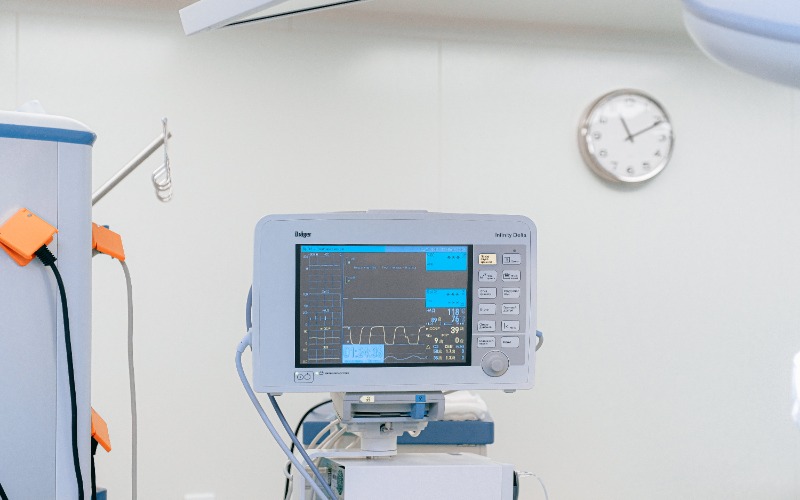Clinical trials are a standard practice for pharmaceutical and medical device companies to bring products to market. Like all research, clinical trials can benefit from the latest technology, but the process is highly regulated and thus resistant to change. Despite this reality, technology offers ways to streamline the process and implement innovation. To start, commercially available off-the-shelf technology (such as Apple watches, fitness trackers, and smartphones) is available to collect data, upload pictures and videos, and exchange other personal health information. Additionally, blood pressure monitors, CPAP machines, and digital scales can automatically transmit data to researchers. Electronic medical records (EMRs) system integration with clinical trials eliminates the need to submit patient data manually. Technology such as artificial intelligence (AI) also helps identify patients who might be good candidates for current or upcoming trials based on their existing medical data. This additional data is available in electronic format and can supplement the original clinical trial data to understand the trial’s impact on research participants.
Potential and Promise
Clinical trials are a critical part of the research spectrum, designed to provide medical companies and researchers with valuable information on various diseases and ultimately improve the quality of healthcare that patients receive. As the National Institutes of Health points out, researchers typically test new treatments or procedures in labs and animals, with the treatments deemed to have the most potential moving into clinical trials involving carefully selected human patients.
Technology benefits the clinical trial process in numerous ways by streamlining and innovating the clinical trial process. For example, tech equipment such as digital patient engagement tools, wearable devices, and sensors enable faster outcome assessments, allowing investigators to produce more consistent data, improve patient compliance, reduce data entry errors, and receive updates from patients faster. The automatic, real-time data provided by these technologies can be uploaded to a central database or to several different databases that can be linked later if desired. In either case, this data enables running an immediate analysis and looks for safety issues while eliminating many time-consuming manual steps that introduce additional opportunities for human error and delay.
Collecting data via devices such as Apple watches and fitness trackers or an implement that might have been made for a specific trial or even a particular patient—glasses or a temperature monitor, for example—creates fewer interruptions for the trial participant. Data can also be collected automatically from devices that patients may even already use and have as part of their routines, as opposed to a device they received for the trial, and patients can complete the forms and assessments at their convenience within the trial parameters. Participants require fewer visits to clinicians’ offices, as having the ability to make clinical “visits” online means they no longer have to take the time to travel to and from in-person appointments physically.
Fewer interruptions improve the clinical trial process. For instance, data collection is faster, and automatic data collection ensures more reliable data. Decreased disruptions and manual work for participants equates to improved compliance. It may also lead to fewer patients dropping out of the trial due to eliminating the effort required for the manual tasks that clinical trials historically required.
Recent research touts the ability to collect objective and biological data continuously outside of scheduled office visits as “one of the greatest potential benefits of digital health technologies” in clinical trials. “Ordinarily, to capture vital signs and other physiological data, patients were required to go to a clinical trial site,” wrote the authors of the 2022 study, assessing the utility of integrating various digital technologies into clinical trials. “However, this setting provides only a snapshot view of patient conditions, results in limited trial participation due to travel requirements and might misrepresent outcomes on account of the artificial nature of the environment.…In addition, patients often need to enter their experiences into paper or electronic diaries, which are dependent on patient recall.”
The same study noted the frequency with which participants delay entering information or sometimes miss recording entries altogether could adversely affect data quality. “The density and continuous nature of the data collected, particularly during early drug development, could support earlier detection of adverse events and allow for more optimized dose titration outside of office visits,” the researchers wrote, adding that “continuous data output creates an opportunity for the development of novel endpoints that were previously inaccessible via traditional clinical trials.”
Ethical Concerns
The use of digital technologies has skyrocketed in recent years. For example, 2022 statistics showed that global wearable technology users grew to 1.1 billion. This may indicate that the digitalization of clinical trials will also continue to rise. Yet, for all the tremendous potential that digital technologies hold in the clinical trial arena, there are challenges to overcome as well.
Chief among them are the ethical and privacy concerns associated with technology’s increasing role in clinical trials. Consider the potential for clinical trial investigators to use digital technologies for surveillance. Or they could use fertility-related metrics such as body temperature to determine if a patient was no longer pregnant and then report or sell that data to authorities. Clinical trial investigators theoretically could use a patient’s mental health records to sell or data-mine to advertisers or potential employers. As such, it’s imperative to take measures to assure participants that their privacy will be respected throughout the clinical trial process and beyond by taking steps such as anonymizing data and controlling access to data, including the use of a data-sharing agreement.
Fortunately, regulatory authorities such as the Food and Drug Administration (FDA) and European Medicines Agency (EMA), and frameworks such as HIPAA and GDPR do help protect patient privacy to a significant extent.
Regulatory Concerns
There are regulatory matters to address as well. For instance, it’s possible to access patient electronic health records (EHRs) without explicit consent, or data could be transferred from one trial to another without informed consent. All clinical trials must follow strict regulatory requirements to ensure regulatory concerns such as informed consent and institutional review board (IRB) supervision are managed at every step of the process.
For example, researchers may need to determine if the devices used in the trial require additional review, such as 510(k) clearance or clinical trials and pre-market approvals. When integrating with data sources such as EMRs or databases that contain patient health information, it is vital that trial managers ensure appropriate business agreements that meet the privacy and regulatory requirements for the transfer of patient information, including deidentification requirements. When recruiting patients pre-trial, permission via informed consent must be obtained to use EMR data medical devices or trackers or reuse data already collected by a tracker such as a smartwatch. There are scenarios where a trial can connect to one or more EMRs, possibly through a third-party vendor, to find patients who meet specific criteria to assess whether they’re a good fit for a particular trial or even several trials. It requires the source of the information—such as the EMR system’s owner—to obtain the correct permissions from their patients. Clinical trial managers are required to obtain informed consent from patients for each specific trial for which they are recruited.
Data privacy experts have raised these concerns for some time. In 2018, the global think tank DataEthics noted the need for “clear guidelines and laws protecting research participants” in decentralized clinical trials involving digital technologies. “We need procedures for data protection and privacy enhancements,” wrote Rune Klingenberg Hansen, calling for procedures for data protection and privacy enhancements. “We need to use the same tools that we leverage for the benefit of clinical research to promote the [digital] rights of research participants. Otherwise, we risk losing valuable trust in science that has taken years to build up.” Hansen also urged greater collaboration between the “traditionally separated fields” of data and research ethics and stressed the need for strong regulatory bodies “with a sensitive approach to data ethics,” noting that “medical devices are moving online and clinical investigations are moving with them.”
Currently only a few laws regulate medical data being collected outside trials, such as the sale and leaking of genetic data. There must be better safeguards for such powerful medical data, even outside trials. Several review boards and regulatory bodies have handled the ethical and regulatory concerns connected to the proliferation of digital technologies as part of clinical trials. The U.S. Food and Drug Administration (FDA) issued guidance in December 2021 on using digital health technologies to acquire data remotely in clinical investigations. The FDA provided recommendations to sponsors, investigators, and other stakeholders for using hardware or software technologies that gathered health-related information from study participants and transmitted that information to study investigators or other authorized parties to evaluate the safety and effectiveness of medical products.
The Future of Clinical Trials is Patient-Centric
Clinical trials can cost anywhere from $48 million to $225 million. With that kind of investment on the line, it’s critical to optimize every aspect of the trial’s operation. Research shows that 80 percent of trials are extended or forced to added additional sites due to challenges with recruitment. Additional studies show that 85 percent of trials fail to retain enough participants and have an average dropout rate of 30 percent. Technology is the key to creating patient-centric clinical trials that address these issues and more. By considering the needs of the participants, researchers can increase success rates and bring products to market faster, more efficiently, and at a lower cost. While the use of technology in clinical trials comes with some risks, the potential value for all stakeholders is great.











